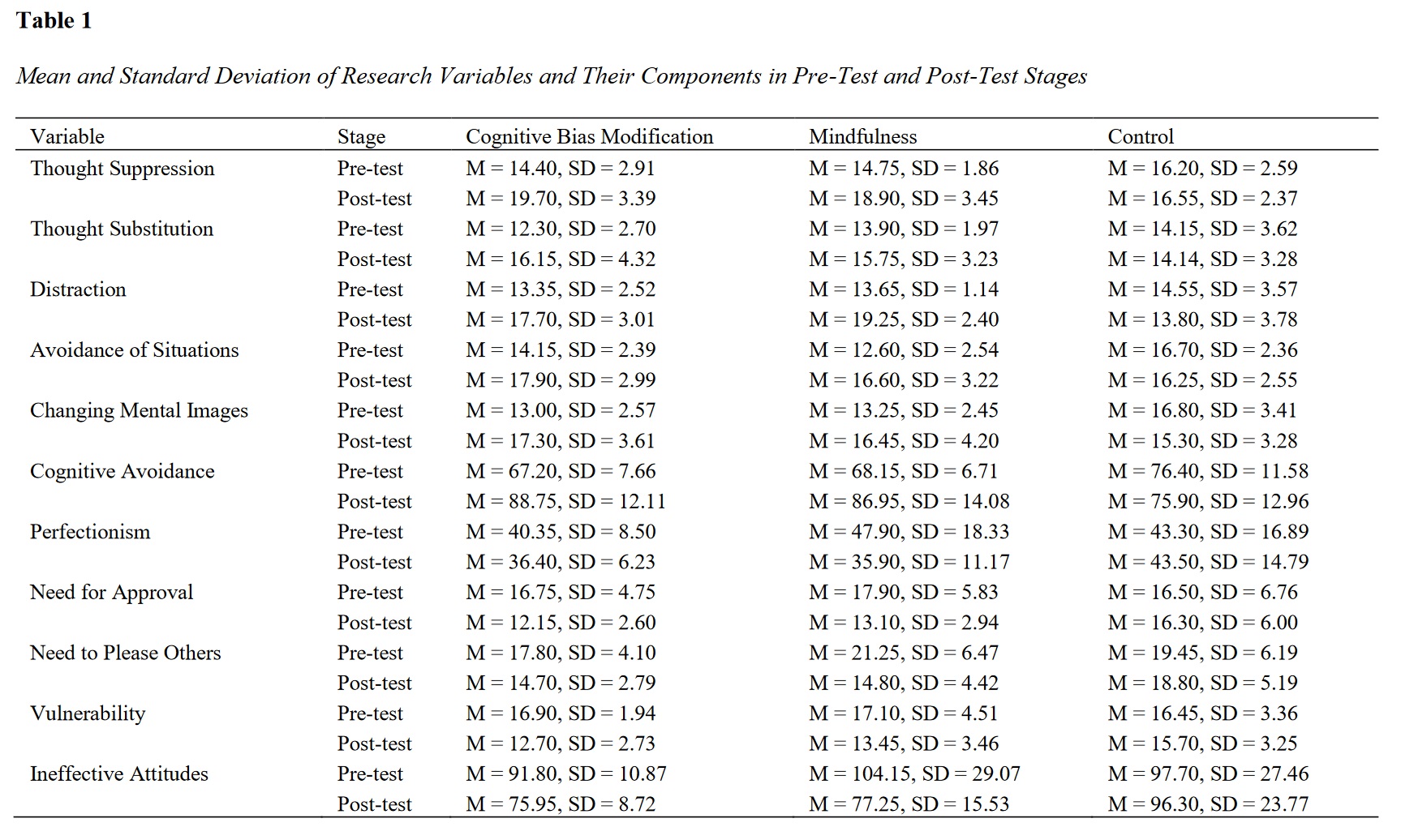Comparison of the Effectiveness of Cognitive Bias Modification Therapy and Mindfulness-Based Cognitive Behavioral Therapy on Cognitive Avoidance and Ineffective Attitudes in University Students with Social Anxiety
Abstract
Objective: The present study aimed to compare the effectiveness of cognitive bias modification therapy (CBM) and mindfulness-based cognitive behavioral therapy (MCBT) on cognitive avoidance and ineffective attitudes in university students with social anxiety.
Methods and Materials: This research employed a semi-experimental design with pre-test, post-test, and control group. The statistical population included all university students with social anxiety disorder at Shiraz University of Teachers during the academic years 2022-2023. A sample of 60 individuals was selected using convenience sampling method, randomly assigned to three groups (20 participants per group). The interventions consisted of cognitive bias modification therapy (7 sessions of 90 minutes each) and mindfulness-based cognitive behavioral therapy (8 sessions of 90 minutes each). Data collection tools included the Connor Social Anxiety Scale (2000), the Cognitive Avoidance Questionnaire by Sexton and Dugas (2004), and the Dysfunctional Attitudes Scale by Weissman and Beck (1978). Data analysis was conducted using descriptive and inferential statistics (analysis of covariance).
Findings: Results indicated significant differences among the three groups in cognitive avoidance, and mindfulness-based cognitive behavioral therapy showed comparable effectiveness to cognitive bias modification therapy. However, there were significant differences in the mean scores of ineffective attitudes and its components between the experimental and control groups, with mindfulness-based cognitive behavioral therapy demonstrating greater effectiveness compared to cognitive bias modification therapy.
Conclusion: The results indicated significant differences among the three groups. This finding also shows that Cognitive Behavioral Therapy and Mindfulness did not have significantly different effectiveness in terms of cognitive avoidance and its components (except for thought substitution).
Downloads

Downloads
Additional Files
Published
Issue
Section
License
Copyright (c) 2024 Somayeh Tahmasebi (Author); Moloud Keykhosrovani (Corresponding Author); Naser Amini (Author)

This work is licensed under a Creative Commons Attribution-NonCommercial 4.0 International License.














